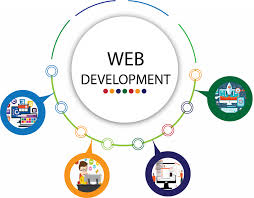IT services have long been the backbone of modern businesses, providing essential support and solutions that enable organizations to function efficiently and innovate effectively. As technology continues to evolve at an unprecedented pace, the landscape of tech support is undergoing a significant transformation. This revolution is driven by emerging technologies such as artificial intelligence, machine learning, and automation, which are reshaping the way IT services are delivered and consumed. The future of tech support promises to be more proactive, personalized, and efficient, addressing the ever-growing demands of businesses and consumers alike. As we navigate this exciting new era, it becomes crucial to understand how these changes will impact the industry and explore the potential benefits and challenges that lie ahead. Revolutionizing IT services, therefore, represents not just an upgrade in support mechanics but a fundamental shift in the way we perceive and interact with technology on a daily basis.
"Revolutionizing IT Services: The Future of Tech Support" explores the transformative trends and emerging technologies shaping the landscape of IT support. Key areas of focus include: 1. **Artificial Intelligence (AI)**: AI-driven solutions are automating routine tasks, enabling predictive maintenance, and enhancing customer interactions through chatbots and virtual assistants. This leads to faster resolution times and improved efficiency. 2. **Cloud-based Solutions**: The rise of cloud computing offers scalable and flexible IT support options, reducing the need for on-premises infrastructure. This allows businesses to access support and resources from anywhere, facilitating remote work and collaboration. 3. **Proactive Support Models**: Instead of reacting to issues, proactive monitoring and support systems can predict and prevent potential problems before they impact users, minimizing downtime and increasing productivity. 4. **Remote Support Technologies**: Advancements in remote support tools allow technicians to diagnose and resolve issues without needing physical presence, making tech support more accessible and reducing costs. 5. **Cybersecurity Enhancement**: With increasing cyber threats, IT support services are integrating more robust security measures, such as real-time threat detection and response systems, to protect sensitive data and networks. 6. **Personalization and User Experience**: Tailoring support services to individual needs and preferences improves user satisfaction. Advanced analytics enable more personalized interactions and faster problem-solving. 7. **Integration with IoT**: As the Internet of Things expands, IT support is evolving to manage and secure a broader range of interconnected devices, ensuring seamless operation across diverse environments. 8. **Skill Transformation**: IT support roles are shifting from basic troubleshooting to more complex, strategic responsibilities, requiring continuous learning and adaptation to new technologies. These factors collectively point to a more agile, efficient, and user-centered approach to IT support, driving significant changes in how services are delivered and managed.
Optimizing Your Business with IT Services Today

In today's fast-paced digital world, IT services play a crucial role in enabling businesses to maintain competitiveness and drive growth. By leveraging IT services, companies can optimize operations, improve efficiency, and ensure a robust security posture. These services encompass a wide range of solutions, including data management, network security, and cloud computing. As businesses evolve, the demand for innovative IT services continues to rise, making them an indispensable component of any successful organization. Whether it's streamlining workflows or safeguarding sensitive data, IT services provide the tools and expertise needed to navigate the complexities of a digital-first economy.
Optimizing your business with IT services involves leveraging technology to improve efficiency, productivity, and competitiveness. Here are key areas where IT services can enhance your business: 1. **Cloud Computing**: Migrate your business processes to the cloud to increase accessibility and collaboration. Cloud solutions offer scalability, allowing your business to grow without the need for significant infrastructure investment. Services like Amazon Web Services (AWS), Microsoft Azure, and Google Cloud provide robust platforms for hosting your applications and data. 2. **Data Analytics**: Utilize data analytics to make informed decisions. IT services can help you gather, analyze, and interpret data effectively. Tools like Tableau, Power BI, and various machine learning platforms can turn raw data into actionable insights, improving marketing, sales strategies, and customer service. 3. **Cybersecurity**: Protecting your business from cyber threats is crucial. IT services include setting up firewalls, antivirus software, and intrusion detection systems, as well as conducting regular security audits and employee training. Services like managed security providers can offer comprehensive protection and monitoring. 4. **Network Management**: Efficient network management ensures that your IT infrastructure operates optimally. IT services provide monitoring, troubleshooting, and optimizing network performance, reducing downtime and improving the overall flow of business operations. 5. **IT Support and Helpdesk**: Outsource IT support to ensure immediate assistance for technical issues. This allows your employees to focus on their core tasks while minimizing disruptions. Managed IT services can offer 24/7 support and quick solutions for any IT-related problems. 6. **Software Development**: Custom software development tailors technology to your specific business needs. Whether it's developing proprietary software or modifying existing solutions, IT services can create applications that improve efficiency or deliver better customer experiences. 7. **Digital Transformation**: Embrace digital transformation by automating processes and adopting new technologies such as AI and IoT. This can streamline operations, reduce human error, and provide your business with a competitive edge. 8. **Disaster Recovery and Business Continuity**: Implementing a robust disaster recovery plan ensures that your business can quickly recover from disruptions like data breaches or natural disasters. IT services can set up regular backups and redundant systems to protect your business operations. 9. **Customer Relationship Management (CRM) Systems**: Implementing and optimizing CRM systems can enhance your customer interaction and relationship strategies. Systems like Salesforce or HubSpot can help manage customer data, track interactions, and streamline communication. 10. **IT Consultancy**: An IT consultancy service can assess your current technology landscape, identify inefficiencies, and recommend solutions, helping you create a strategic IT roadmap aligned with your business goals. By integrating these IT services, you can streamline operations, cut costs, enhance security, and ultimately drive growth in your business.
The Role of IT Services in Modern Enterprises
top social media management

The role of IT services in modern enterprises is pivotal, driving efficiency, innovation, and competitiveness across industries. IT services encompass a broad range of activities and solutions that support businesses in managing their technological infrastructure, enhancing operations, and delivering value to customers. 1. **Operational Efficiency**: IT services streamline operations by automating routine tasks and optimizing processes. This reduces manual effort, minimizes errors, and enhances productivity. For instance, enterprise resource planning (ERP) systems integrate core business processes, allowing seamless information flow across departments. 2. **Data Management and Analytics**: With the exponential growth of data, enterprises rely on IT services for effective data management. IT services support the collection, storage, and analysis of data, enabling businesses to make informed decisions. Advanced analytics and business intelligence (BI) tools help in identifying trends, forecasting demand, and improving customer experiences. 3. **Cybersecurity**: As businesses become increasingly digital, protecting sensitive data against cyber threats is critical. IT services play a crucial role in implementing robust cybersecurity measures, such as firewalls, encryption, and intrusion detection systems. They also help in developing security policies and strategies to safeguard enterprise assets. 4. **Cloud Computing**: IT services facilitate the migration to and management of cloud environments, offering enterprises scalability, flexibility, and cost-effectiveness. Cloud services support remote work, enhance collaboration, and provide access to advanced technologies like artificial intelligence (AI) and machine learning (ML). 5. **Innovation and Development**: IT services drive digital transformation by supporting the development of new products and services. They enable the integration of cutting-edge technologies, such as Internet of Things (IoT) devices and AI, into existing business models, fostering innovation and creating competitive advantages. 6. **Customer Engagement and Service Delivery**: Modern IT services enhance customer engagement by enabling personalized experiences. Through customer relationship management (CRM) systems and digital marketing solutions, businesses can tailor their services to meet customer needs and build stronger relationships. 7. **Infrastructure and Network Management**: IT services ensure the optimal performance of an enterprise’s IT infrastructure, including servers, networks, and devices. They manage maintenance, troubleshooting, and upgrades, ensuring minimal downtime and efficient service delivery. 8. **Compliance and Risk Management**: IT services assist enterprises in meeting regulatory requirements and managing risks associated with technology usage. They help in conducting audits, ensuring data privacy, and maintaining compliance with industry standards and legal mandates. In conclusion, IT services are integral to the success of modern enterprises. By leveraging these services, businesses can enhance their operational capabilities, innovate, and remain competitive in a rapidly evolving digital landscape.
How IT Services Drive Innovation in Business

IT services play a crucial role in driving innovation in business by providing the technological foundation that enables companies to develop new products, improve processes, and enhance customer experiences. Here's how IT services contribute to business innovation: 1. **Enhanced Data Analysis**: IT services enable businesses to collect, process, and analyze vast amounts of data. By leveraging advanced analytics and big data technologies, companies can gain insights into market trends, customer behavior, and operational efficiencies, allowing them to make informed decisions and identify new opportunities for innovation. 2. **Improved Collaboration and Communication**: Modern IT services facilitate seamless communication and collaboration across different departments and geographical locations. Tools such as cloud computing, instant messaging, and video conferencing enable teams to work together more efficiently, leading to faster problem-solving and the generation of innovative ideas. 3. **Automation of Routine Tasks**: By automating routine and repetitive tasks, IT services allow employees to focus on higher-value activities such as creative problem-solving and strategic planning. Automation technologies, such as robotic process automation (RPA) and machine learning, can improve productivity and drive innovative approaches to business operations. 4. **Fostering a Culture of Innovation**: IT services can help create an organizational culture that encourages innovation by providing platforms for knowledge sharing and continuous learning. Social intranets, knowledge management systems, and online training modules are examples of IT solutions that support a culture of ongoing improvement and ideation. 5. **Access to Cutting-Edge Technologies**: Through IT services, businesses can access the latest technological advancements without needing significant capital investment. This includes cloud-based solutions, artificial intelligence, and the Internet of Things (IoT), enabling companies to experiment with new tools and business models, leading to innovative products and services. 6. **Enhancing Customer Experiences**: IT services empower businesses to provide personalized and responsive customer experiences. Through customer relationship management (CRM) systems, businesses can analyze customer interactions and feedback to tailor offerings and improve service, thereby driving customer-centric innovation. 7. **Agility and Flexibility**: IT services support business agility by providing scalable solutions that can adapt to changing market conditions. This flexibility allows businesses to quickly pivot and innovate in response to new challenges and opportunities, such as launching new products or entering new markets. 8. **Security and Risk Management**: Innovation often involves taking risks, but it also requires maintaining a secure environment. IT services provide robust security frameworks and risk management solutions to protect intellectual property and sensitive data, enabling companies to innovate with confidence. By integrating these IT services strategically, businesses are better positioned to innovate continuously and remain competitive in an ever-evolving marketplace.
Enhancing Security Through Advanced IT Services
Enhancing security through advanced IT services involves employing state-of-the-art technologies and practices to protect an organization’s data, infrastructure, and systems. This approach encompasses several key components: 1. **Threat Intelligence and Analysis**: Utilizing tools and services to gather, analyze, and interpret threat data from various sources helps predict, prevent, and respond to cybersecurity incidents. Advanced threat intelligence allows organizations to stay ahead of potential threats by understanding emerging risks and vulnerabilities. 2. **Identity and Access Management (IAM)**: Ensuring that only authorized personnel have access to specific systems and data is crucial. Advanced IAM solutions provide multi-factor authentication, single sign-on, and strict user access policies to prevent unauthorized access and reduce insider threats. 3. **Network Security**: Implementing sophisticated firewalls, intrusion detection and prevention systems, and advanced encryption methods to safeguard networks against both external and internal threats. These tools help in monitoring network traffic and blocking malicious activities in real-time. 4. **Endpoint Security**: Protecting devices that connect to corporate networks, such as laptops, smartphones, and tablets, through next-generation antivirus, anti-malware solutions, and endpoint detection and response (EDR) technologies. These advanced services offer comprehensive protection by continuously monitoring and analyzing device activity. 5. **Cloud Security**: As organizations increasingly rely on cloud services, securing cloud environments becomes paramount. This involves using encryption, data loss prevention, secure APIs, and cloud access security brokers (CASBs) to ensure that cloud data is secure and compliant with industry regulations. 6. **Security Information and Event Management (SIEM)**: These systems collect and analyze security data from across the organization's IT infrastructure in real-time. They provide insights into potential security breaches and help in incident detection and response by offering comprehensive visibility into the security posture. 7. **Incident Response and Management**: Developing advanced incident response plans that leverage automation and machine learning to quickly identify, contain, and mitigate the impact of cybersecurity incidents. These services help reduce downtime and data loss during breaches. 8. **Data Encryption and Protection**: Using advanced encryption standards to protect data at rest and in transit ensures that sensitive information remains secure, even if intercepted or accessed by unauthorized users. 9. **Compliance and Risk Management**: Implementing tools and practices to ensure compliance with legal and regulatory standards such as GDPR, HIPAA, or PCI-DSS. Advanced IT services help in regular risk assessments and audits to identify and address vulnerabilities. 10. **Continuous Monitoring and Updates**: Keeping the software and systems up-to-date with the latest patches and upgrades to guard against known vulnerabilities. Continuous monitoring ensures that any deviations from normal operations are quickly detected and addressed. By integrating these advanced IT services into their security infrastructure, organizations can significantly enhance their capability to protect against evolving cyber threats, safeguard sensitive data, and maintain operational integrity.
Efficient IT Services: A Game-Changer for Companies
Efficient IT services have become crucial for companies aiming to maintain competitiveness and foster innovation in today’s fast-paced digital environment. These services drive operational efficiency, enhance customer experiences, and enable businesses to respond quickly to market changes. 1. **Cost Reduction**: Streamlining IT processes can significantly lower operational costs by reducing redundancies, enhancing system performance, and optimizing resource allocation. Efficient IT services help companies avoid unnecessary expenditures, thus directing funds to strategic growth initiatives. 2. **Enhanced Productivity**: Automation of routine tasks allows employees to focus on higher-value activities. With effective IT support, businesses can deploy tools that improve communication, collaboration, and project management, thereby boosting overall productivity. 3. **Improved Data Management**: Efficient IT services ensure robust data management practices, from secure data storage to effective disaster recovery solutions. This enhances decision-making by providing quick access to reliable data and analytics. 4. **Scalability and Flexibility**: Businesses can scale operations up or down according to demand without significant disruptions, thanks to cloud computing and other scalable solutions. This flexibility is a key feature of efficient IT services that supports agile business models. 5. **Security Enhancements**: Cybersecurity is a critical component of efficient IT services. By employing advanced security measures, companies protect sensitive data against breaches and build consumer trust, a vital asset in maintaining a competitive edge. 6. **Customer Experience**: Efficient IT services can transform customer interactions by integrating technologies like AI and machine learning for personalized service offerings. Better CRM systems and faster response times heighten customer satisfaction and loyalty. 7. **Innovation and Growth**: Companies that harness efficient IT services are better positioned to embrace technological advancements, such as IoT, big data, and AI, fostering innovation and encouraging sustainable business growth. Implementing and maintaining efficient IT services require strategic planning and continuous evaluation. Companies often collaborate with specialized IT service providers to tailor solutions that meet their specific needs while leveraging the latest technological advancements.
In conclusion, the revolutionizing of IT services is poised to transform the landscape of tech support, making it more efficient, responsive, and adaptive to the changing needs of businesses and individuals alike. As technology continues to advance at a rapid pace, the integration of AI, automation, and cloud-based solutions will play a pivotal role in enhancing the quality and accessibility of IT services. By embracing these innovations, organizations can ensure they remain competitive and well-equipped to handle future challenges, ultimately leading to a more seamless and productive digital experience for all users.
top social media management